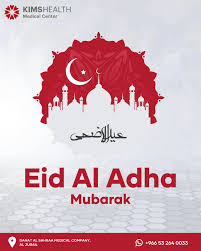
Introduction to Eid al-Adha
Eid al-Adha, known as the ‘Festival of Sacrifice’, is one of the most significant holidays in the Islamic calendar. Observed by millions of Muslims worldwide, this festival marks the end of Hajj, the annual pilgrimage to Mecca, and commemorates the willingness of Prophet Ibrahim (Abraham) to sacrifice his son in obedience to God’s command. Its importance lies not only in its religious significance but also in its underlying themes of sacrifice, gratitude, and charity.
When is Eid al-Adha Celebrated?
Eid al-Adha is celebrated on the 10th day of Dhu al-Hijjah, the last month of the Islamic lunar calendar. The exact date varies each year based on lunar sightings, leading to variations in celebration dates across different countries. This year, Eid al-Adha is expected to fall around June 28, 2023, making preparations for the festival timely and relevant for communities practicing various Islamic traditions.
Traditions and Celebrations
The celebration begins with a special prayer at mosques and open fields, gathering the community for a unified worship experience. Following the prayers, the act of Qurbani, or sacrifice, is performed. Families often sacrifice sheep, goats, or cows, and the meat is divided into three parts: one third for the family, one third for relatives and friends, and one third for those in need, thereby emphasizing the virtues of charity and compassion.
In addition to the rituals of sacrifice, Eid al-Adha is a time for families to come together, share meals, and support one another. It is also common for individuals to wear new or their finest clothes, exchange greetings, and give gifts. These practices help foster a sense of community and togetherness during the holiday.
Global Observations and Variations
While the core meaning of Eid al-Adha remains the same—commemorating obedience to God and acts of generosity—the way it is celebrated can vary by region. In Turkey, for instance, families may exchange sweets in place of meat, while in Indonesia, communities feature vibrant celebrations complete with traditional dances and music. These variations highlight the cultural richness within the global Muslim community.
Conclusion
Eid al-Adha serves as a powerful reminder of sacrifice, faith, and the importance of compassion towards others. As the festival approaches this year, it gives Muslims an opportunity to reflect on their values and engage in acts of kindness, ensuring that the spirit of Eid transcends just being a one-day event. In an increasingly interconnected world, understanding and acknowledging such celebrations paves the way for greater cultural appreciation and global harmony.






